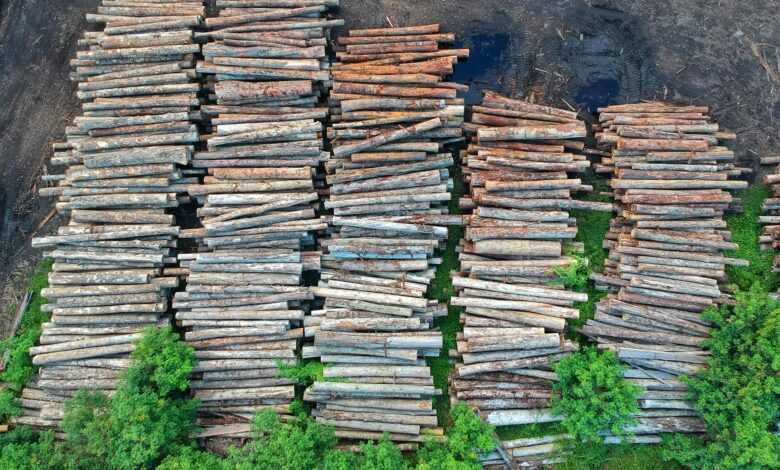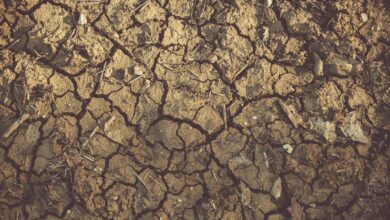The Devastating Effects of Deforestation: How Our Actions Impact the Environment

Despite their importance, deforestation rates remain alarmingly high, with an estimated 18.7 million acres of forest lost annually, according to the World Wildlife Fund (WWF). The consequences of this destruction are severe and far-reaching, impacting not only the environment but also the economic and social well-being of communities worldwide.
Causes of deforestation
Deforestation can be attributed to various factors, including:
- Agricultural expansion: As the global population grows, the demand for food and agricultural products increases, leading to the clearing of forested areas for farmland and grazing pastures.
- Commercial logging: The exploitation of forests for timber and other wood products is a significant driver of deforestation, particularly in regions with weak or poorly enforced environmental regulations.
- Urbanization and infrastructure development: The construction of roads, buildings, and other infrastructure projects often necessitates the removal of trees and vegetation, contributing to deforestation.
- Mining and energy extraction: The extraction of minerals, oil, and gas can lead to the destruction of forests, as these activities require the clearing of land and the construction of access roads and infrastructure.
- Slash-and-burn agriculture: In some regions, farmers practice slash-and-burn agriculture, a method that involves cutting down and burning trees to clear land for cultivation. This practice is particularly prevalent in tropical regions.
Environmental impact of deforestation
The environmental consequences of deforestation are far-reaching and devastating, affecting various aspects of the planet’s ecosystems.
Climate change and deforestation
Forests play a crucial role in mitigating climate change by absorbing and storing carbon dioxide, a major greenhouse gas. When trees are cut down or burned, the stored carbon is released back into the atmosphere, contributing to the increase in atmospheric greenhouse gas levels and exacerbating global warming.
According to the Food and Agriculture Organization (FAO), deforestation accounts for approximately 11% of global greenhouse gas emissions, making it a significant contributor to climate change.
Loss of biodiversity
Forests are home to a vast array of plant and animal species, many of which are found nowhere else on Earth. Deforestation destroys these habitats, leading to the displacement or extinction of countless species.
The loss of biodiversity can have far-reaching consequences for ecosystems, as each species plays a vital role in maintaining the delicate balance of the natural world. The extinction of a single species can trigger a chain reaction, disrupting entire food chains and altering the functioning of ecosystems.
Soil erosion and degradation
Trees and vegetation play a crucial role in anchoring soil and preventing erosion. When forests are cleared, the exposed soil becomes vulnerable to erosion by wind and water, leading to the loss of valuable topsoil and the degradation of land quality.
Soil erosion can have severe consequences for agriculture and food production, as nutrient-rich topsoil is essential for crop growth. Additionally, eroded soil can clog waterways, leading to increased flooding and water pollution.
Water cycle disruption
Forests play a vital role in the water cycle, regulating the flow of water and maintaining the quality of freshwater sources. Trees and vegetation help to absorb and store water, preventing excessive runoff and flooding.
When forests are cleared, the natural water cycle is disrupted, leading to an increased risk of floods, droughts, and water scarcity. This can have severe consequences for communities that rely on freshwater sources for drinking, agriculture, and other essential activities.
Economic and social consequences of deforestation

In addition to its environmental impacts, deforestation also has significant economic and social consequences.
- Loss of resources: Forests provide a wide range of resources, including timber, food, and medicinal plants. The destruction of these resources can have severe economic implications, particularly for communities that rely on them for their livelihoods.
- Displacement of indigenous communities: Many indigenous communities have lived in and relied on forests for generations. Deforestation can lead to the displacement of these communities, disrupting their traditional ways of life and threatening their cultural heritage.
- Increased poverty and inequality: Deforestation can exacerbate poverty and inequality, as the loss of resources and displacement of communities can limit economic opportunities and access to essential resources.
- Increased risk of natural disasters: The destruction of forests can increase the risk of natural disasters, such as floods, landslides, and soil erosion, which can have devastating consequences for communities living in affected areas.
- Health impacts: Deforestation can also have direct impacts on human health, as the loss of forests can contribute to air pollution, water contamination, and the spread of diseases.
Efforts to combat deforestation
Recognizing the severe consequences of deforestation, various efforts have been undertaken by governments, organizations, and individuals to combat this environmental crisis.
- Sustainable forest management: Promoting sustainable forest management practices, such as selective logging and reforestation, can help to ensure that forests are used in a responsible and sustainable manner.
- Protected areas and conservation efforts: Establishing protected areas and implementing conservation efforts can help to preserve existing forests and prevent further deforestation.
- Reforestation and afforestation programs: Initiatives aimed at replanting trees and restoring degraded forests can help to mitigate the effects of deforestation and promote the recovery of ecosystems.
- Sustainable agriculture and agroforestry: Encouraging sustainable agricultural practices, such as agroforestry (the integration of trees and shrubs into agricultural systems), can reduce the need for clearing new land for farming.
- Community-based conservation: Involving local communities in conservation efforts and promoting sustainable livelihoods can help to reduce the pressure on forests and ensure that communities have a vested interest in protecting these valuable resources.
- International cooperation and policy initiatives: Addressing deforestation requires global cooperation and the implementation of effective policies and regulations to protect forests and promote sustainable practices.
Conclusion: The urgent need to protect our forests
Deforestation is a complex and multifaceted issue that requires immediate and concerted action from governments, organizations, and individuals alike. The consequences of continued deforestation are severe and far-reaching, impacting not only the environment but also the economic and social well-being of communities worldwide.
By protecting our forests, we can mitigate the effects of climate change, preserve biodiversity, prevent soil erosion and water scarcity, and safeguard the livelihoods and cultural heritage of indigenous communities. It is our collective responsibility to adopt sustainable practices, promote conservation efforts, and prioritize the preservation of these invaluable natural resources.
Join the fight against deforestation by supporting organizations dedicated to forest conservation and sustainable management practices. Together, we can make a difference and protect our planet’s precious forests for future generations.




